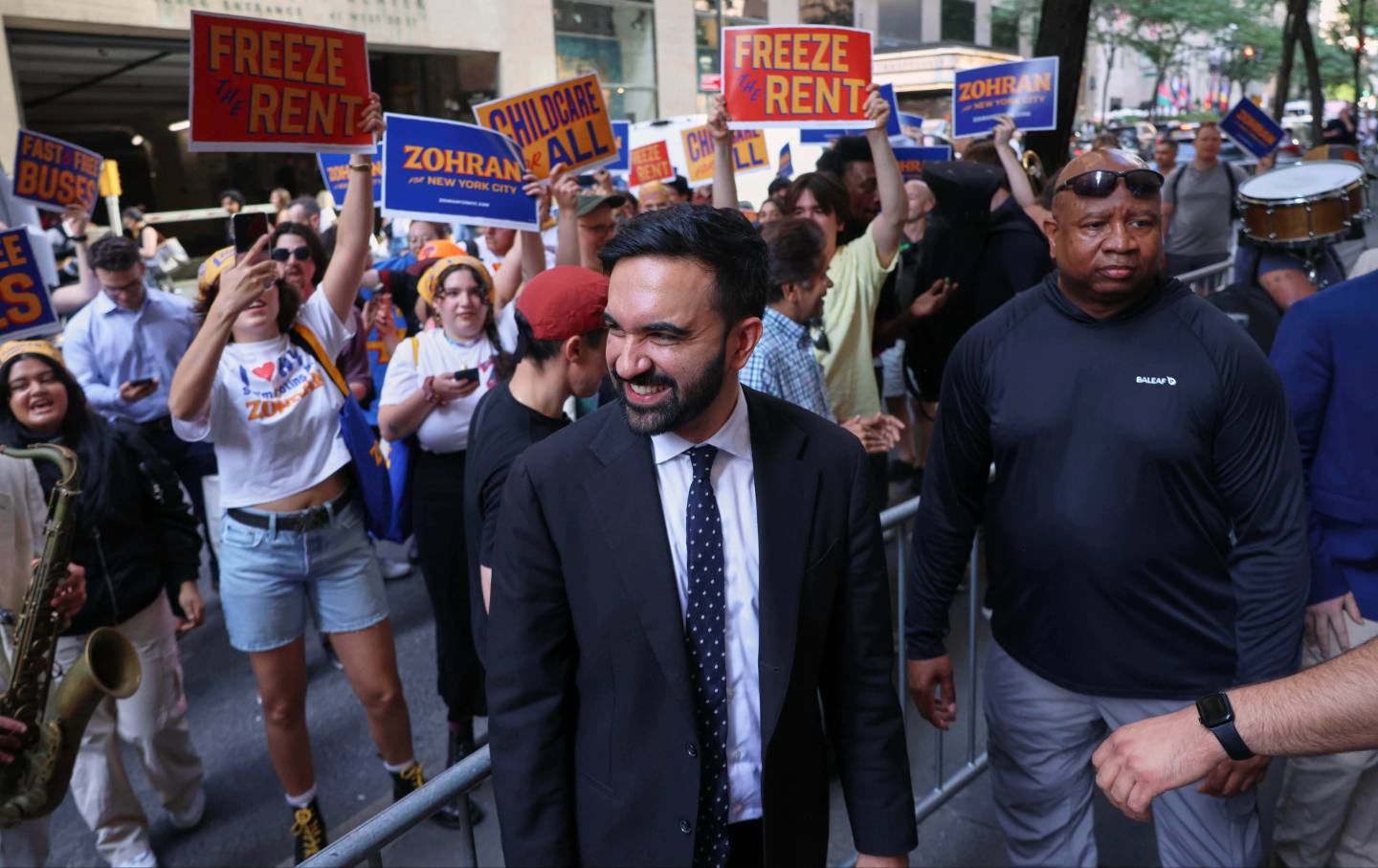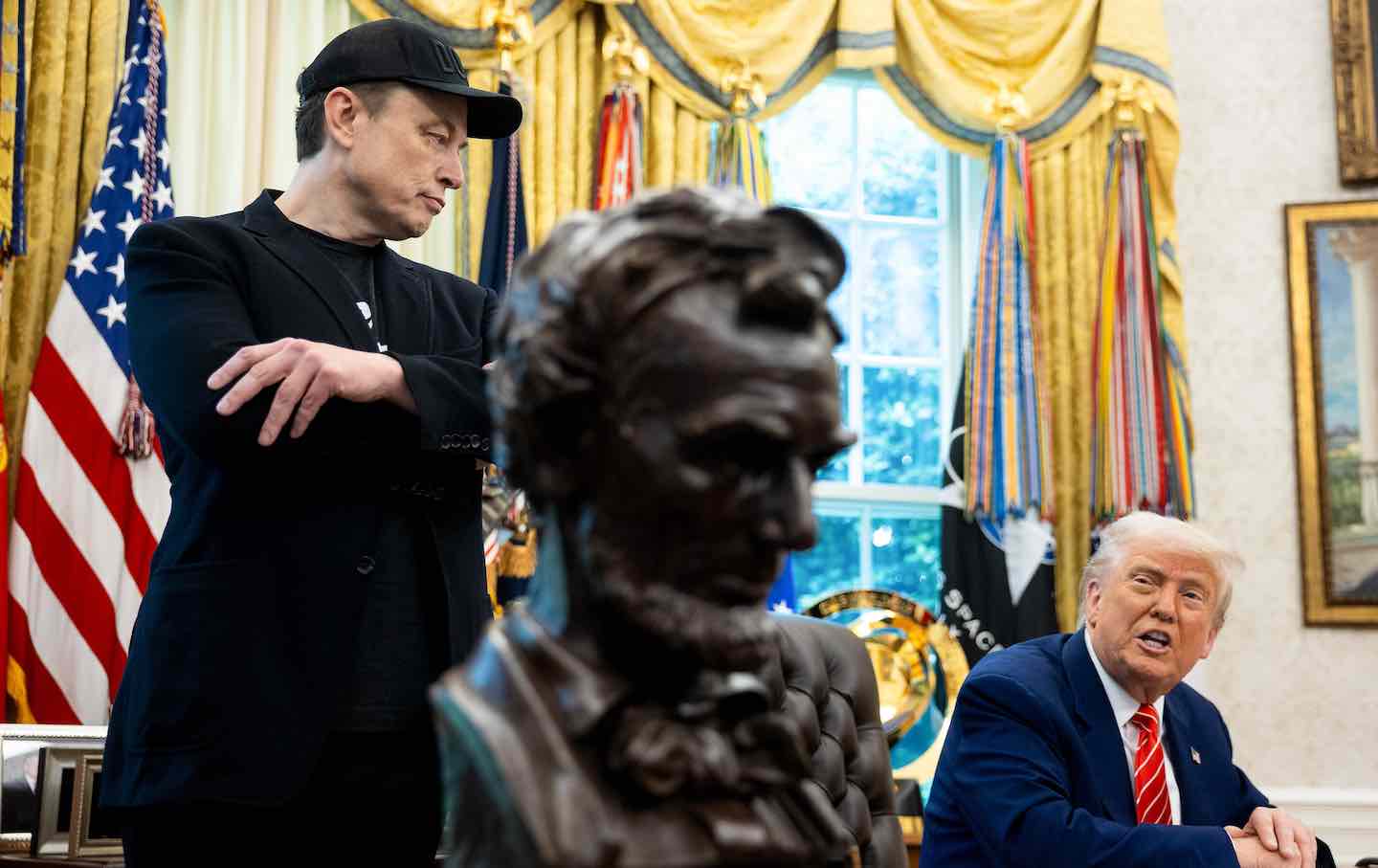Why Pete Hegseth Still Has a Job
Hegseth is terrible at every part of his job except the one that matters to Trump—a willingness to break with norms that keep the military in check.

For a dead man walking, Pete Hegseth sure seems healthy. Any one of the several scandals he’s weathered recently would have instantly ended the career of a lesser man, but this avatar of masculinity whose fighting spirit so perfectly embodies our “pre-woke” military—the one he wrote about in his best-selling book, the one he never shuts up about—simply cannot die. Hegseth’s penchant for sharing classified information on Signal, his use of an unsecured office phone line and compromised personal devices, and his repeated celebration of Take Your Wife to Sensitive Meetings With Foreign Officials Day add up to more than just a bad look. These things, along with his purges of women and people of color from the top brass, the marginalization and/or termination of his principal advisers, and his increasingly paranoid and erratic leadership style, are actively hollowing out the Pentagon’s ability to perform its basic administrative functions. In the case of geopolitical catastrophe (say, war between India and Pakistan), the question isn’t whether America will respond in a helpful or harmful way, but whether America can mount a coherent response at all.
Hegseth is a liability in every possible sense. So why is he still here? The leading explanation—that Trump doesn’t want to appear acquiescent to liberal demands—carried a lot more weight before the administration canned national security adviser and fellow Signal enthusiast Mike Waltz. Some think this is the first of many Signal-related firings and that Hegseth will be next. Personally, I doubt it. Trump clearly did not pick Hegseth for his leadership skills, or his experience, or his ability to keep track of classified information. Trump picked Hegseth because both men believe the military is a threat to the regime’s authoritarian ambitions and must be neutralized, purged, and remade in Trump’s own image.
Like Trump, Hegseth believes the military has been compromised by the left-wing “enemy within.” His opposition to women in combat roles and the alleged pussification of Our Boys in Uniform are part of something far larger than the typical culture-war grift. He understands that if the commander in chief were to, say, invoke the Insurrection Act and order the military to round up immigrants on American soil, the Pentagon might say no. His idea of Making America Great Again involves changing that “no” into a “yes,” and he’s working hard to make that happen.
Many people think of the armed services as intensely conservative institutions. This is true in the sense that they are hidebound by tradition, loyal to rules and hierarchies, and resistant to change. When I enlisted in the Army, I took the same oath all service members take: to uphold not the government, or the president, but the Constitution of the United States—“against all enemies, foreign and domestic.” While celebrity generals have somewhat undermined the American military’s tradition of political disengagement in recent years, and other presidents have deployed the military within our borders under the Insurrection Act, these actions have generally been limited in scope, with troops nearly always restricted to supportive roles. The kind of massive military deployment on domestic soil Trump has been publicly fantasizing about for years would violate both tradition and the Constitution itself. A refusal by top brass to follow presidential orders has never been the most likely outcome, but it is a very possible one.
Hegseth has few qualms about breaking with such norms; he repeatedly called for Trump to use the military to crush the 2020 Black Lives Matter protests. He also has a well-established commitment to defending accused war criminals. Hegseth has gone to the mat for people like Eddie Gallagher, a Navy SEAL who was accused by his own men of shooting an old man and a young girl in cold blood and of stabbing a captive teenager to death during his time in Iraq. And he has passionately advocated for Clint Lorance, who repeatedly ordered his men to shoot and kill three visibly unarmed Afghan men on a motorcycle (which they eventually did). Thanks to Hegseth, who successfully lobbied Trump on behalf of both men during his first term, these accused murderers walk free today.
If Mike Waltz’s dismissal isn’t followed soon by Hegseth’s, it will be the clearest sign yet that Trump chose the Fox News host because of his flaws, not despite them. According to Politico, Waltz’s true sin was acting independently rather than serving as a conduit for the president’s every whim—a mistake Hegseth seems constitutionally incapable of.
Hegseth’s proclivity for unencrypted phone lines and apps with disappearing messages would only be a problem for an administration that cares more about national security than covering its tracks. His undermining of military readiness is only a problem for someone who cares more about protecting America than conquering it. If you want your armed forces ready and able to defend the country against all enemies, foreign and domestic, it’s hard to imagine someone worse for the job than Pete Hegseth. If, however, you want to transform it into a personal army of uniformed thugs more than happy to execute the president’s political orders on US ground, it’s hard to imagine anyone better.








